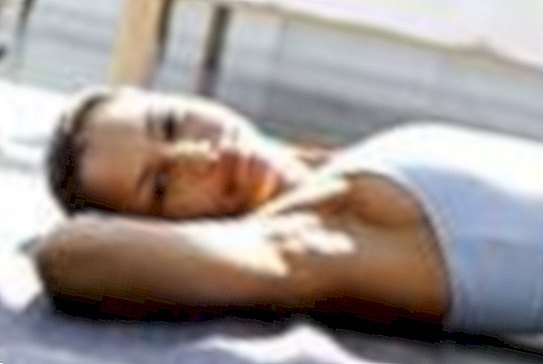Sport in biorhythm

Every human being has an internal biological clock - it determines the time when the body temperature drops, the blood circulation increases, the pulse rises, when we are tired or awake.
In addition to internal factors (eg hormones), the clock pulse is also determined by external influences (eg light).
And so it affects our fitness:
Before breakfast
At night, the body has needed a lot of energy for regeneration and repair work, the carbohydrate stores are empty. In order to have enough power for the training, he must tap the fat stores - This is especially good if you want to lose weight.
Unlike the muscles, however, the brain can not burn energy from the fat cells, thinking and coordination are limited.
For sports such as aerobics, jazz dance or volleyball you have to expect poor performance - In the worst case, it can even lead to injuries, because the body can not implement the required technology so well. Better is now a moderate endurance training (eg walking, swimming, slow jogging or cycling on the home trainer).
In the morning
Shortly after breakfast, the energy storage are charged. The body is rested, awake and well supplied with blood.
Now is the time for more intense training. You can now do muscle training at home or in the gym, or go hiking for the weekend, for example.
Right after lunch
The body is busy digesting the food and now has little energy for strenuous activities.
Better is a quiet, relaxed walk. The gentle movement in the fresh air and the oxygen help the body to regenerate - so it comes faster again from the midday low.
In the afternoon and early evening
Between 16 and 19 o'clock is the optimal time for a power workout: body temperature, blood pressure and pulse show peak values, the willingness to perform reaches its peak.
Now muscle training is particularly effective. Also lung function and respiratory rate are top - and an endurance training in the studio or outside while jogging or cycling therefore also very effective.
After 21 o'clock
The body is already busy shutting down its functions and adjusting to rest and relaxation. Anyone who is still doing power sports that really "whips up" the circulation (eg fast jogging, high-impact aerobics or spinning) can not fall asleep well afterwards.
It is better to plan a rest period of about two hours between workout and bedtime. Those who only have time for sports late in the evening, should pay attention to a long and slow cool-down (at least 10 to 15 minutes): after jogging always loose "leak" and generally take enough time after each sport to loosen up the muscles and to mobilize the joints.
Stretch gently and extensively all of the heavily used muscles - allowing the body to regenerate better and to rest more quickly before falling asleep.
Just before falling asleep
Now gentle movements like yoga, back or relaxation gymnastics do well. Also worthwhile is an evening walk, which helps the body to switch from performance to rest and relax tense muscles.
The tension of the day dissolves, the head is released - and these are the most important prerequisites for a good night's sleep.










